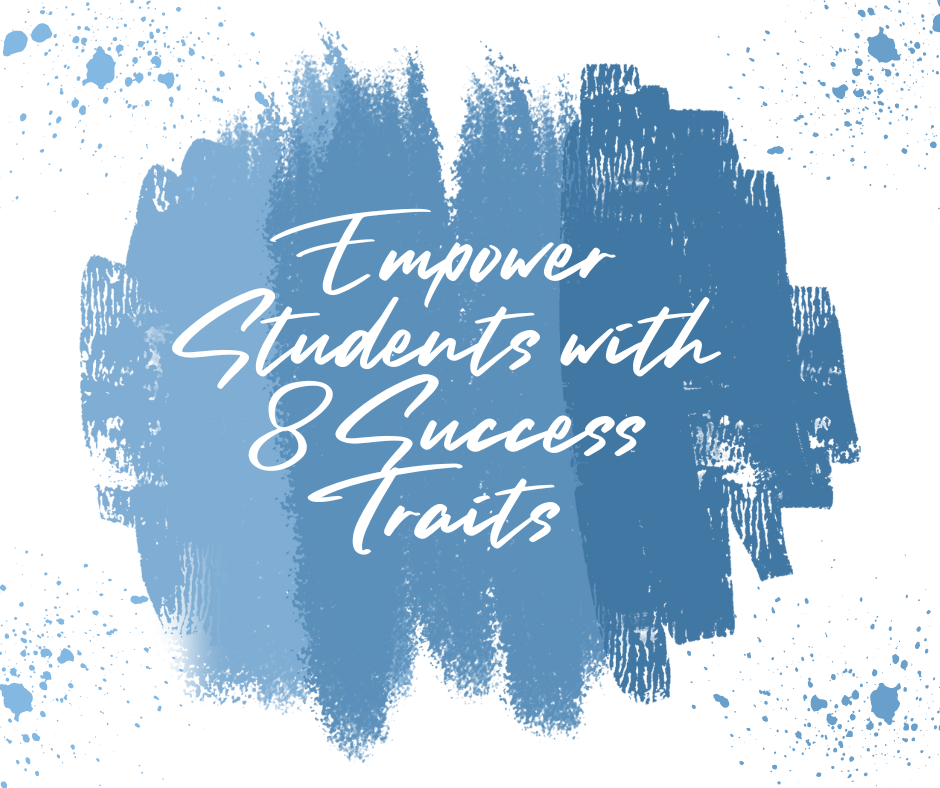Looking at the following “8 Traits of Successful People,” we can see how our focus of education needs to shift from performing well to score well, to learning how to live in real world situations.
For over 50 years, I have evaluated my effectiveness, not by how my students scored on standardized tests, but how they later dealt with each life challenge they faced. It’s interesting to note that many of my poor test takers actually grew into my most successful former students, because they learned each of the skills necessary to be successful.
8 Traits of Successful People:
- They are friendly, but not too friendly.
- They know how to fake it.
- They surround themselves with like-minded people.
- They uphold standards for choosing long term relationships.
- They are able to communicate effetively with others, even those who hold opposing views.
- They tend to be creative.
- If time management is not natural, they can learn how to use their time wisely.
- They know how to critically look at everything they read, see, and hear.
None of these skills apply to scoring well on tests. Yet, teachers have been forced to spend a large part of their instruction on testable material. Most of which is memorized and forgotten after the test is completed.
Teaching the life skills that will help students be successful in the future will be increasingly more important as careers and life in general will change exponentially faster. The children of today will need to be resilient and out of the box thinkers, since answers for their new challenges won’t be found on the internet.
- What does being friendly but not too friendly mean? it means one knows how to listen so others feel heard. It means they don’t always agree with others, but they make others feel like their opinions matter and there is an agreement to agree to see things differently. They don’t try to dominate. This is something children need to be taught. They need to learn how to play fair, celebrate someone else’s wins and be a good loser., while also being a gracious winner.
- Faking is something successful people do to themselves when they have to complete tasks they do not like or that are challenging. “Fake it until you believe it,” is what I asked of my students. If you say, “I will be really happy when this task is completed,” the tasks becomes easier to finish. If I tell myself, “You are capable and by hanging in there, you will conquer this challenge.” Tenacity is the skill that I saw in my former third graders that has served them in their adult lives. Faking it was what allowed them to not give up. Success people usually pretend they are doing well, feeling great, thinking they are competent until they actually are.
- Surrounding oneself with others that are positive problem solvers adds to one’s own success. Positive thinkers are the ones that accomplish the greatest things. Negative people offer insights one would not think of, but successful people act on changing the negative, so being only around negative people can be too draining,
- They choose the people they socialize and work with carefully. These are friends and colleagues that value their boundaries. They are people who share their same desires to give their best with a positive mind approach to life’s challenges.
- They possess excellent communication skills. They don’t monopolize the conversation, demonstrate a genuine desire to hear other’s opinions. They make eye contact, and make others feel heard. They may not share the same ideas or thoughts, but they demonstrate that they respect the other’s opinions.
- Successful people think outside the box. When others think they have hit a dead end, the successful person finds a detour to take. They look for the possibilities and original solutions, instead of turning to other’s for the answers. They take time away to think instead of relying on Google for answers. The challenges they will be facing in the future won’t have the answers on the internet.
- They not only know how to manage their own time, they know how to help others manage their time when they are working collaboratively. Their proper prior planning takes into consideration each individual’s unique needs and method of approaching a project. They know how to deal with tasks they don’t like and how to adapt their planning to take into consideration their unique needs so they can meet the deadlines imposed on them by others.
- The successful individuals know how to read all opinions and evaluate their efficacy. They don’t take anything they read seriously. They know that there are many sides to a position and when they are only hearing one, they can’t possibly trust it. They need to seek others opposing views so they can make an informed opinion of their own. This opinion may actually be the one that other opposing opinions can agree with. Put 5 rabbis in a room to dicuss one sentence in the Torah and you will get 25 different answers by time the discussion goes around the table five times. You’ll hear, “Yes, but on the other hand,” many times before they come to a consensus if they ever do.
There are ways of teaching children how to acquire these traits. Check out my ebooks for some ideas.
Please share your idea, because when we share we become more empowered to help our children grow into independent, self-reliant, self-advocates, and productive members of society.
